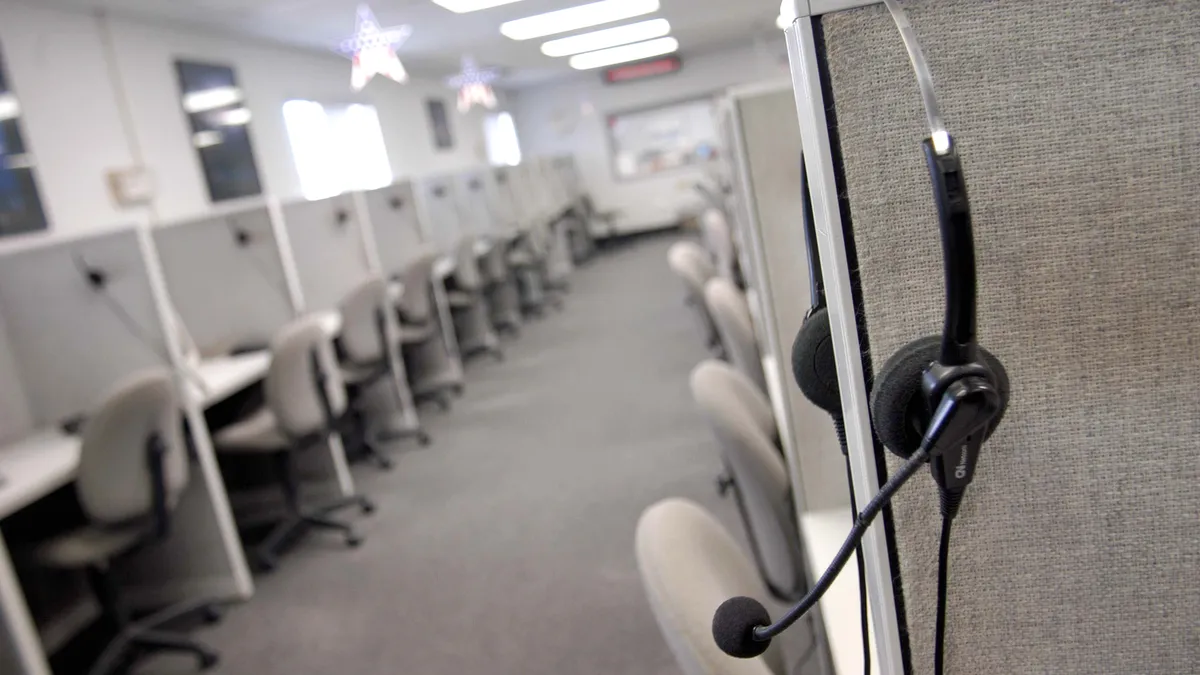Editor's note: Welcome to Resource Actions, our occasional, back-and-forth column covering everything from the bizarre to the day-to-day that, despite everything, impacts HR departments. Please feel free to send all tips, thoughts and memes to [email protected] and [email protected].
Ryan Golden: Generation Z is upon us. Its members are bringing new ideas and ambitions to the workplace — but are also running into the same barriers as their predecessors.
That's the conclusion of nonprofit education organization Girls With Impact, which found in its recent survey of 500 men and women age 13 to 22 that while 65% want to make a difference to a cause they care about and 60% want to "personally create something innovative," many are worried for their mental health.
Kathryn Moody: We're back at that "what do we do with the new kids on the block?" panic that sets in every 20 years or so (but seems to be largely constant, these days).
According to the Girls With Impact study, mental health concerns are topped only by being successful and getting a job — which kind of all play together well in the sandbox. All three beat body image, grades or getting into college, by the way; this generation is thinking about the future and it apparently scares the heck out of them.
Gen Z and millennials share a lot of the blame (or credit, depending on how you look at it) for some workplace changes, but the oldest millennials are in their 40s now — and some things, frankly, haven't changed. Millennials want workplaces to prioritize well-being and more than half are flight risks due to stress, a survey from Welltok revealed in August. But employers are largely missing the mark in helping employees manage their health, respondents said.
A lot of people confuse millennials and Gen Z. We're going on record here as saying they are definitely not the same. But for employers that are worried about how to please their various generational cohorts, one place to start may be to look at what things have largely stayed the same during the last decade or so.
Ryan Golden: It was just last May when the World Health Organization (WHO) named workplace burnout an "occupational phenomenon," further defining it as "a syndrome conceptualized as resulting from chronic workplace stress that has not been successfully managed." For many, the WHO's announcement seemed to highlight something that had been an HR talking point for years.
And no, it's not just caused by the deadlines and day-to-day work common in every industry. Your mileage may vary on TED Talks, but the below segment by Tom Oxley, lead consultant and relationship director for U.K.-based Bamboo Mental Health, provides a helpful way to think about the problem.
"Mental health is complex, but this much I know: people have poor mental health, they want to be at work on the whole, and they're struggling to do that," Oxley says. "But they can't speak up to their manager. The manager doesn't know how to have a conversation, the employee doesn't know if the manager is going to support them or stigmatize them."
As Oxley points out, mental health issues often follow us outside our worksite. It's the text messages and notifications we receive from our work email address on our personal phones late at night, just as much as it is the dread you get from staring at a blank page at 3 p.m.
Kathryn Moody: After all, Gen Z is extremely online — and that has revealed to them, for better or worse, the potentially crushing reality of adulthood. Many exit college carrying loads of student debt. They're ambitious and want to get ahead in their careers fast, but may find themselves hindered by slowed promotion pipelines due to older employees staying in the workforce longer.
The Girls With Impact survey shows that they may also be more aware of the importance of maintaining their mental health alongside their physical health. Employers are on this journey, now, too. Many have incorporated mental health into their wellness programs, accompanying financial well-being and a sense of belonging.
Ryan Golden: HR leaders are likely reading this column thinking about the remedies their teams have implemented to prevent or assist with mental health issues. Maybe you pay for employees' access to a mindfulness app, or your benefits package includes sessions with a licensed therapist.
Access to care is an issue and these things can help. But to address the problem more thoroughly (and potentially stand out from other workplaces) employers need to consider the cultural issues at play. Experts who've previously spoken to HR Dive suggest ideas like "soft contracts," which allow employees to open up to leaders if they're feeling overwhelmed, without repercussions. Managers can be trained to step in if they notice their reports exhibiting warning signs, and can probe the subject during check-ins.
More importantly, addressing the issue of burnout doesn't mean that work won't get done or that objectives won't be met. In fact, the status quo could be costing employers millions in productivity costs.
There are several places for employers to start, including the U.S. Department of Labor's mental health toolkit for employers. It also helps if HR personnel know how to talk about the problem and how to document any accommodations made.
Kathryn Moody: When implementing strategies, be wary of lumping millennials and Gen Z in one bucket (but also be sure to avoid stereotyping). I'm a pretty late millennial, and even I don't even know what's really going on with the youths anymore. But helping employees with mental health helps everyone in the long run, and may be a huge win for organizations trying to hold on to people as unemployment hits 50-year lows.





















